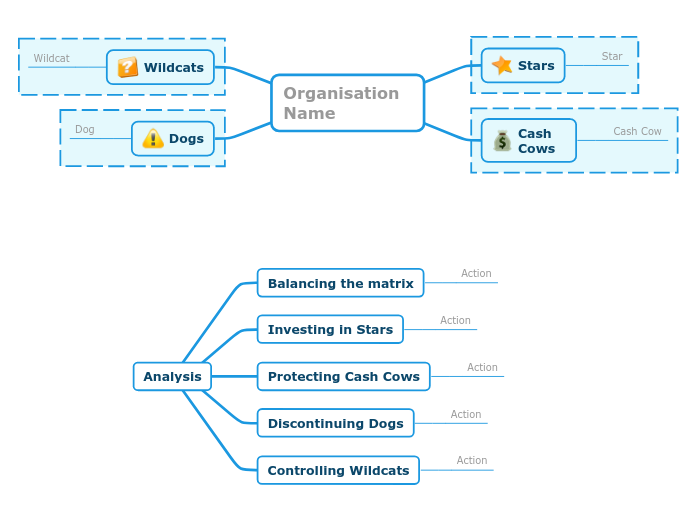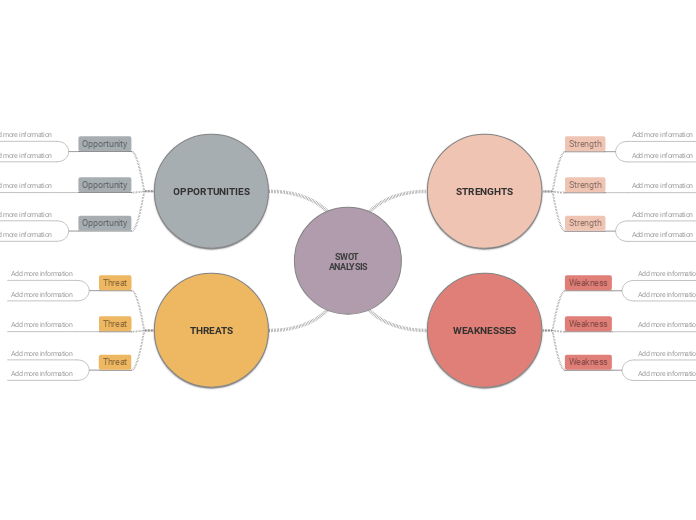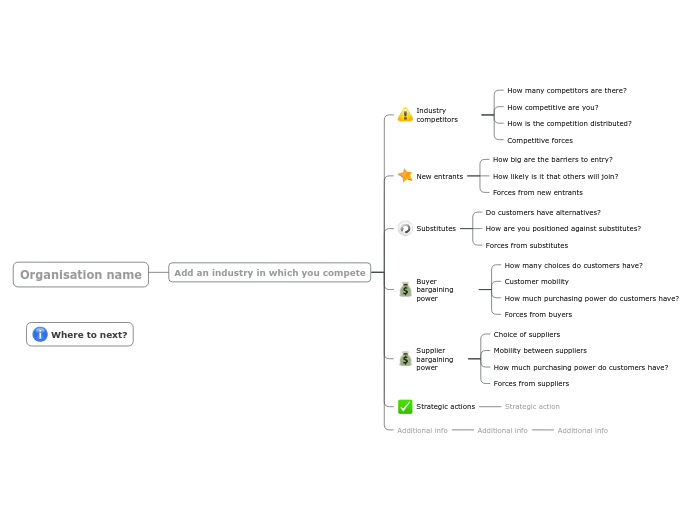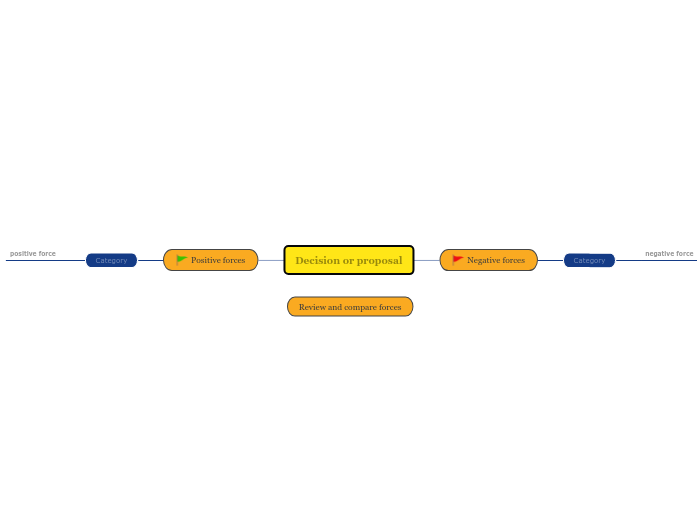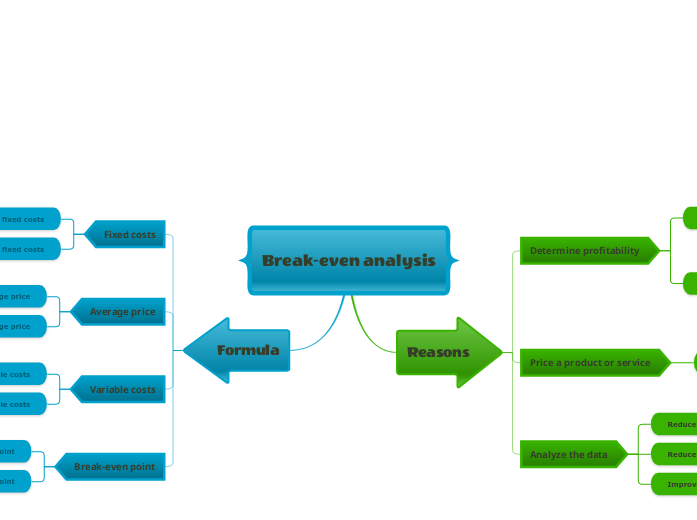Analysis
Controlling Wildcats
Wildcats need continual attention, to ensure that they turn into Stars, or are revised before losses mount up.
The issues that make Wildcats risky must be stabilized.
How will you control Wildcats?
Type in an idea.
Discontinuing Dogs
It may be better to divert resources away from Dogs into other areas with more growth potential, by either selling or discontinuing them.
But if they need more investment, then they should be made to compete with other investment opportunities.
What will you do with Dogs?
Type in an idea.
Protecting Cash Cows
Cash Cows generate profit and allow you to take chances on Wildcats. It is important to maintain these Cash Cows for as long as they are profitable.
Eventually, they will migrate to Dogs and will start to cost money and opportunities.
How will you protect Cash Cows?
Type in an idea.
Investing in Stars
When the market for your Star products or services levels off, you need to ensure that you maintain a strong market share so that you can continue to make a return on investment.
How will Stars become Cash Cows?
Type in an idea.
Balancing the matrix
Action
Typical lifecycles are:
- Wildcat > Star > Cash Cow > Dog
- Wildcat > Star > Dog
Do you have enough Wildcats, Stars and Cash Cows?
What action do you need to take to balance the matrix? Type in an idea.
Organisation Name
Whose portfolio are you analyzing?
Type in the name of the organization whose portfolio you are analyzing.
Dogs
Dog
Dogs are products, services or business units that:
- Are in a low growth market
- Have a low market share
- May break even or make a slight loss
- Are unlikely to return further investment
Type in a Dog product, service or business unit.
Wildcats
Wildcat
Wildcats are products, services or business units that:
- Are in a high-growth market
- Have a low market share
- Require significant investment to reach that potential
- Could also fail and achieve nothing
Type in a Wildcat product, service or business unit.
Cash Cows
Cash Cow
Cash Cows are products, services, and business units that:
- Are in a low growth market
- Are mature, successful and stable
- Maintain a significant market share
- Can be sustained without a big investment
Type in a Cash Cow product, service or business unit.
Stars
Star
Stars are products, services or business units that:
- Are in a high-growth market
- Have a high market share
- Need continual investment to maintain market share
Type in a Star product, service or business unit.
